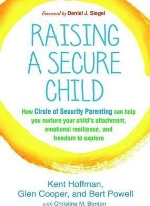Anxiety in young children, through to middle childhood, and worse, in adolescence [due to pubertal changes], can always be difficult to differentiate from other manifestations of that same anxiety (like anger, as a result of feeling anxious). For e.g., a child may respond angrily and frustrated as a result of not being able to put into words what they feel. These may be persistently frustrating if those around them are clueless or unattuned to their emotional responses. It makes sense that when one feels anxious, sometimes they are caught in that web of feelings such that the individual is rendered preoccupied and unable to use information in the environment to assist them to regulate emotionally.
It may also be difficult for both parents and children, when parents are overwhelmed or dismissive by experiencing intense and persistent displays of noncompliant behaviour and strong emotions such that tendencies to over-react are increased. What tends to follow is heightened arousal of that same frustration in the child when those around the child try to avoid or devalue those same feelings. This may also occur for parents who deem that these emotions are just a passing phase, or just needs their child to "be good", by quieting down or "don't cry". That would be a another post on cultural sensitivities and what's deemed to be "spoiling" a child!
Let me clarify that this may well occur for parents who are typically caring and sensitive as well, because parenting tough emotions is not an easy task. I know so because my 2-year-old toddler is a handful when she has her 30-45min meltdowns that test our resolve to respond patiently and kindly. So, what does it mean for parents who are less tolerant to displays of anxious and "negative" emotions? Well, there is no simple answer here. Since for the majority of the world's population, it's actually okay, to opt for more dismissive ways of managing the child's anxieties or other strong emotions. No one wrote the rules for parenting, let alone follow any governed rules when doing so. Many parents I know, "wing it", just ask around, or do what their parents did for them. However, the fact is that it can be very stressful for both parents and their child when there is little awareness of the context or what might be more difficult for the child in the long run. [this subject area can be a whole lecture in itself, so let's keep this brief here] So, it might pay to just be open to what we can learn about our current parenting practices, in a similarly kind and patient manner. This can assist in managing our own anxieties about managing our children.
Experts in this area have shown that parents tend to miscue what their child needs due to their own emotional vulnerabilities, even for the best of us. And this tends to be more true when parents are triggered by a reflection of their own vulnerabilities. E.g if a parent is sensitive to scenes of separation, it may lead to difficulties managing a child's anxiety in times of separation. You might see this in situations like school refusal, or dealing with a single-parent setup. This experience for the parent may bring a familiar experience of what it feels like to be put in that position, evoking anxiety and a sense of vulnerability - and hence feel like they should give into their child who displays anxiety to help them feel better. So you might see parents being unable to be firm when the situation calls for it. In fact, the parent might instead, be unable to hold up the structure and consistency that keeps the child feeling safer, say, by not bargaining further with the child and swiftly stating that this is how it's going to be in a kind way. Bottomline, we can all be confident when parenting our children's feelings, especially anxiety.
So do check out HeySigmund.com's article on http://www.heysigmund.com/anxiety-in-children-parents/ as a good resource, or starting point for quick tips on helping manage your child's anxieties.
For more on being able to deal with tough emotions and helping your own children build a sense of felt security, check out Circle of Security International and their useful videos. I recommend watching all of them as they are informative and interesting, coming from a different perspective altogether.
I highly recommend this next book published by the creators of the Circle of Security, Raising a Secure Child (2017), as an excellent resource for parents keen on nurturing their child's attachment, emotional resilience, and freedom to explore.





What to do when what we see is not anger, but we still have to deal with it because deep down there's anxiety (pardon the convolutedness).